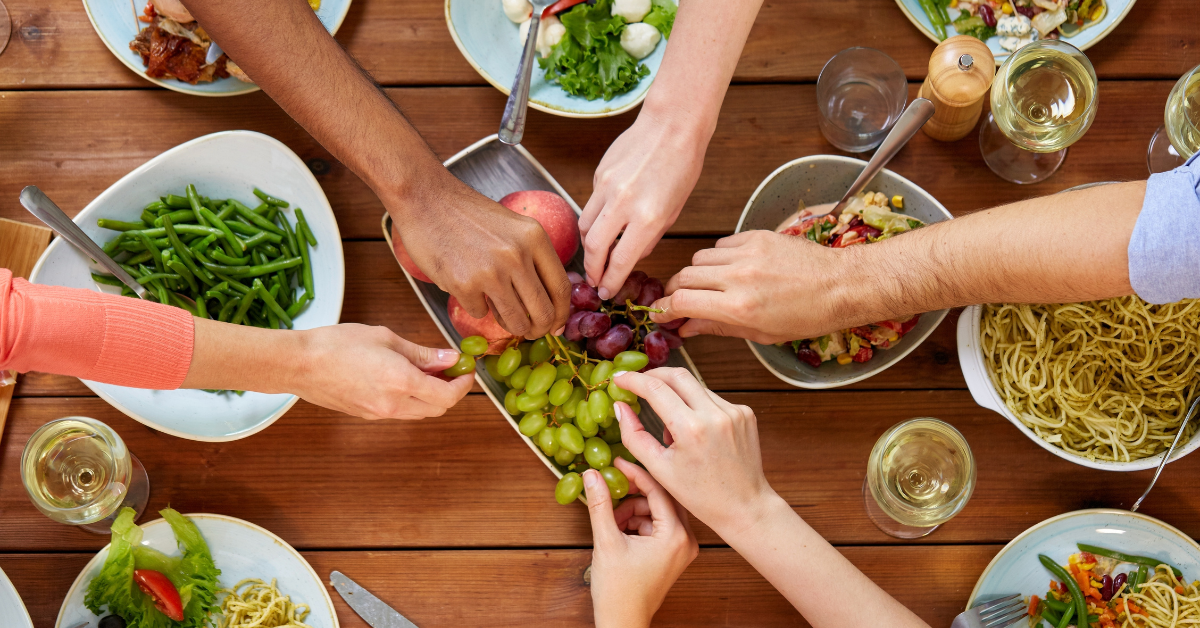The behaviors enacted by those suffering from Eating Disorders can alter eating habits, with very detrimental consequences for health and impact on the body's ability to receive appropriate and balanced nutrition. On the occasion of the month dedicated to these Disorders, we explore how it is possible to propose foods as allies, not enemies, remembering that it is essential to help those who suffer to achieve balance on all the planes involved: dietary, physiological and psychological.
.jpg?width=800&height=538&name=Riscoprire_cibo_alleato_nutrizione_alimentazione_UniSR%20(7).jpg)
Some common attitudes may be the major reduction of caloric intake through the elimination of entire food categories or certain essential nutrients (often carbohydrates or fats), the tendency to skip main meals, or having a real obsession and control over healthy food and toward one's body weight. In other cases, however, excessive amounts of food are consumed that can result in binge eating mechanisms to the point of total loss of control and activation of a vicious cycle of guilt, inadequacy, and low self-esteem.
.jpg?width=800&height=533&name=Riscoprire_cibo_alleato_nutrizione_alimentazione_UniSR%20(6).jpg)
Altered perception of food
Food is not only the vehicle of those nutrients essential to ensure our survival. It also has social, cultural and emotional value. When suffering from Eating Disorders, food can generate fear, anxiety, stress, guilt, within a deeper psychological discomfort.
The resulting emotional burden can lead to a preference for an increasingly selective diet, associating some foods with negative feelings, based on false beliefs that have no scientific evidence in nutrition: these foods are identified as phobic foods (or fear foods). This leads to the progressive exclusion of fear foods from the daily diet and the consequent difficulty in sensory perception of food, particularly the associated taste and liking.
.png?width=800&height=419&name=Riscoprire_cibo_alleato_nutrizione_alimentazione_UniSR%20(1).png)
Other foods, on the other hand, are associated with a comfort and consolation effect (comfort foods): foods with a strong taste impact (e.g., those very high in simple sugars, salt, and saturated fats) ostensibly tend to gratify and appease a sense of hunger, but they trigger a real addiction, again altering the taste sensation of other foods and creating an eating imbalance.
.jpg?width=800&height=553&name=Riscoprire_cibo_alleato_nutrizione_alimentazione_UniSR%20(1).jpg)
Nutrition as an ally, not an enemy
The first step in being able to have proper nutrition is to become aware of one's nutritional needs and follow a course of nutrition education under the guidance of a nutritionist experienced in Eating Disorders.
Knowledge of food, how it works within our bodies and its metabolic, physical and mental impact is essential to break the cycle of obsessive thoughts related to food and diet culture and experience mealtime as a time of pleasure and tranquility.
.jpg?width=800&height=355&name=Riscoprire_cibo_alleato_nutrizione_alimentazione_UniSR%20(3).jpg)
Foods to suggest: which ones and how
For those who are close to those suffering from an Eating Disorder, mealtime can be a very tiring time to manage. Turning to specialized centers is very important for taking charge with multidisciplinary teams capable of setting up the best therapeutic program from a medical, psychological and nutritional point of view.
At the same time, however, it is important to recreate a relaxed and calm atmosphere at the table that is as reassuring as possible. If one already has a nutritional intake, it is important to follow the proposed indications by establishing a relationship of trust and transparency.
.jpg?width=800&height=450&name=Riscoprire_cibo_alleato_nutrizione_alimentazione_UniSR%20(5).jpg)
In general, the composition of the plate should ensure the presence of all essential nutrients (carbohydrates, proteins, fats and fiber) and the typical foods of the Mediterranean diet should be offered: whole grains, lean proteins, a generous portion of seasonal vegetables seasoned with a good EVO oil, and fruit.
Let's remember: the key word in the nutritional rehabilitation pathway for those with an Eating Disorder is balance, and this must concern all three planes involved: dietary, physiological and psychological.
.jpg?width=800&height=533&name=Riscoprire_cibo_alleato_nutrizione_alimentazione_UniSR%20(2).jpg)


.jpg?width=800&height=538&name=Riscoprire_cibo_alleato_nutrizione_alimentazione_UniSR%20(7).jpg)
.jpg?width=800&height=533&name=Riscoprire_cibo_alleato_nutrizione_alimentazione_UniSR%20(6).jpg)
.png?width=800&height=419&name=Riscoprire_cibo_alleato_nutrizione_alimentazione_UniSR%20(1).png)
.jpg?width=800&height=553&name=Riscoprire_cibo_alleato_nutrizione_alimentazione_UniSR%20(1).jpg)
.jpg?width=800&height=355&name=Riscoprire_cibo_alleato_nutrizione_alimentazione_UniSR%20(3).jpg)
.jpg?width=800&height=450&name=Riscoprire_cibo_alleato_nutrizione_alimentazione_UniSR%20(5).jpg)
.jpg?width=800&height=533&name=Riscoprire_cibo_alleato_nutrizione_alimentazione_UniSR%20(2).jpg)